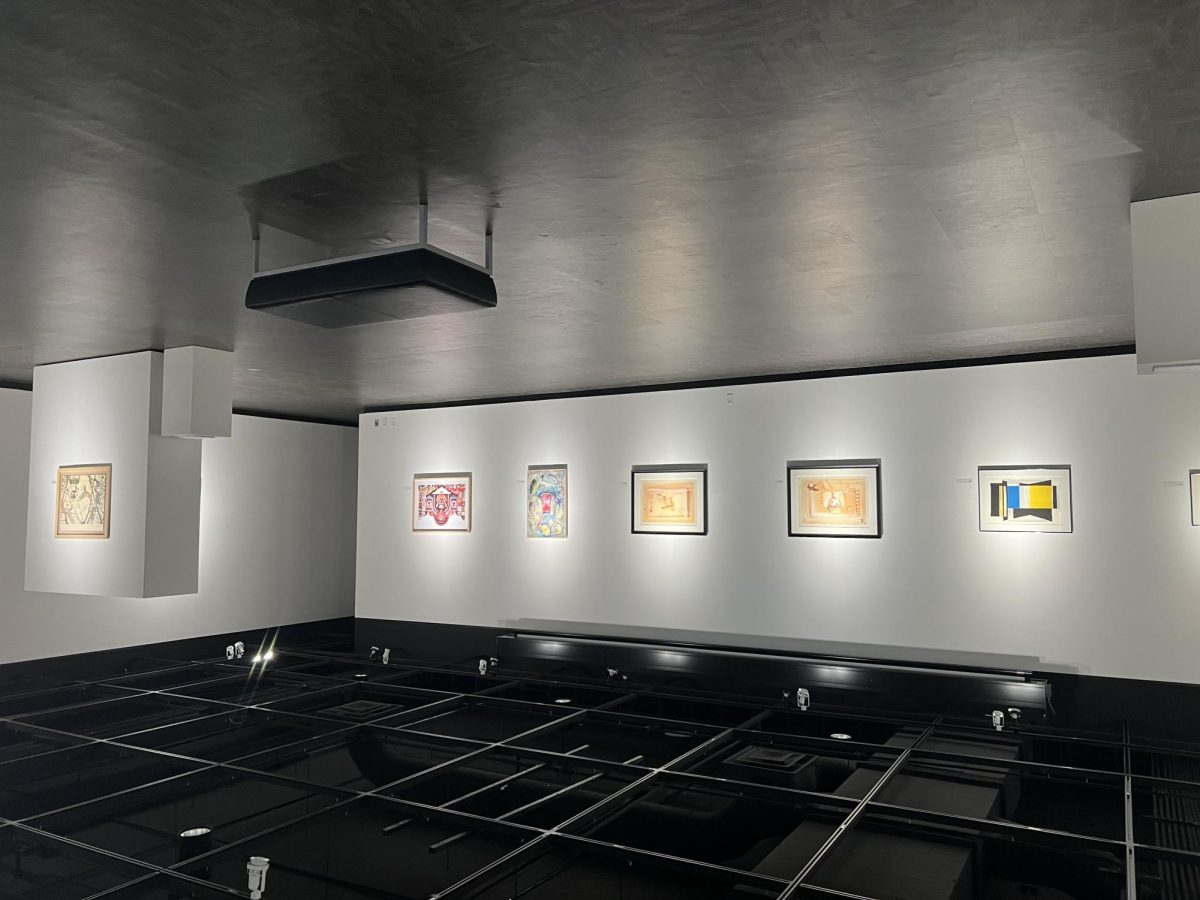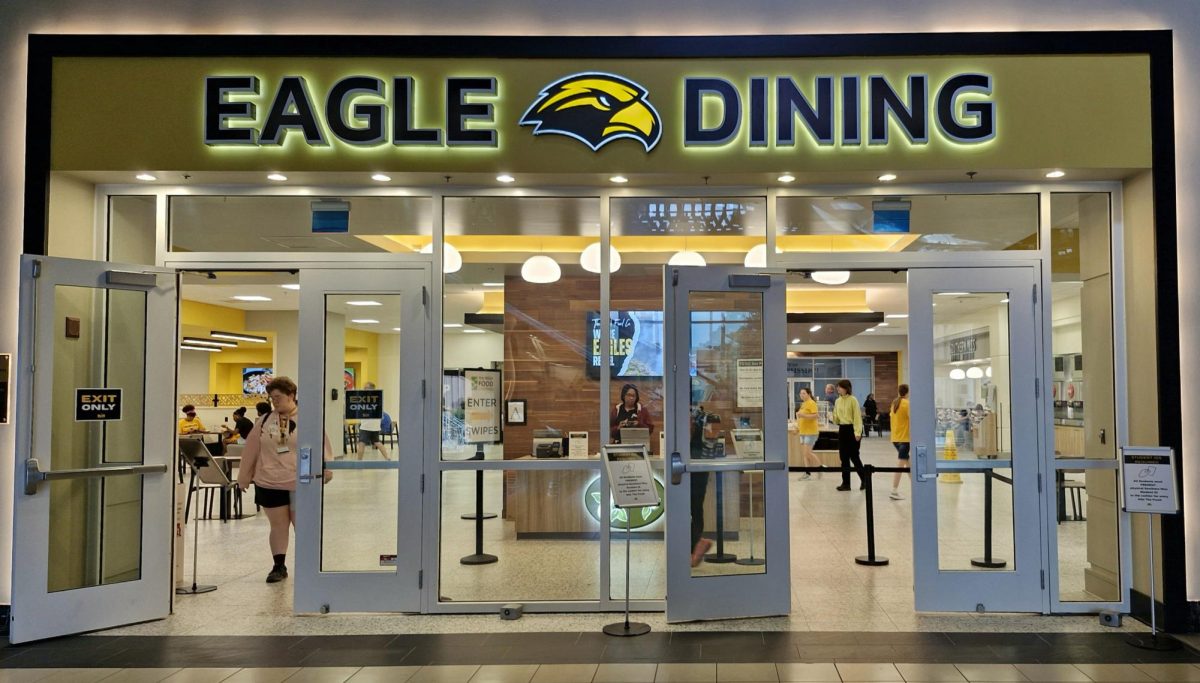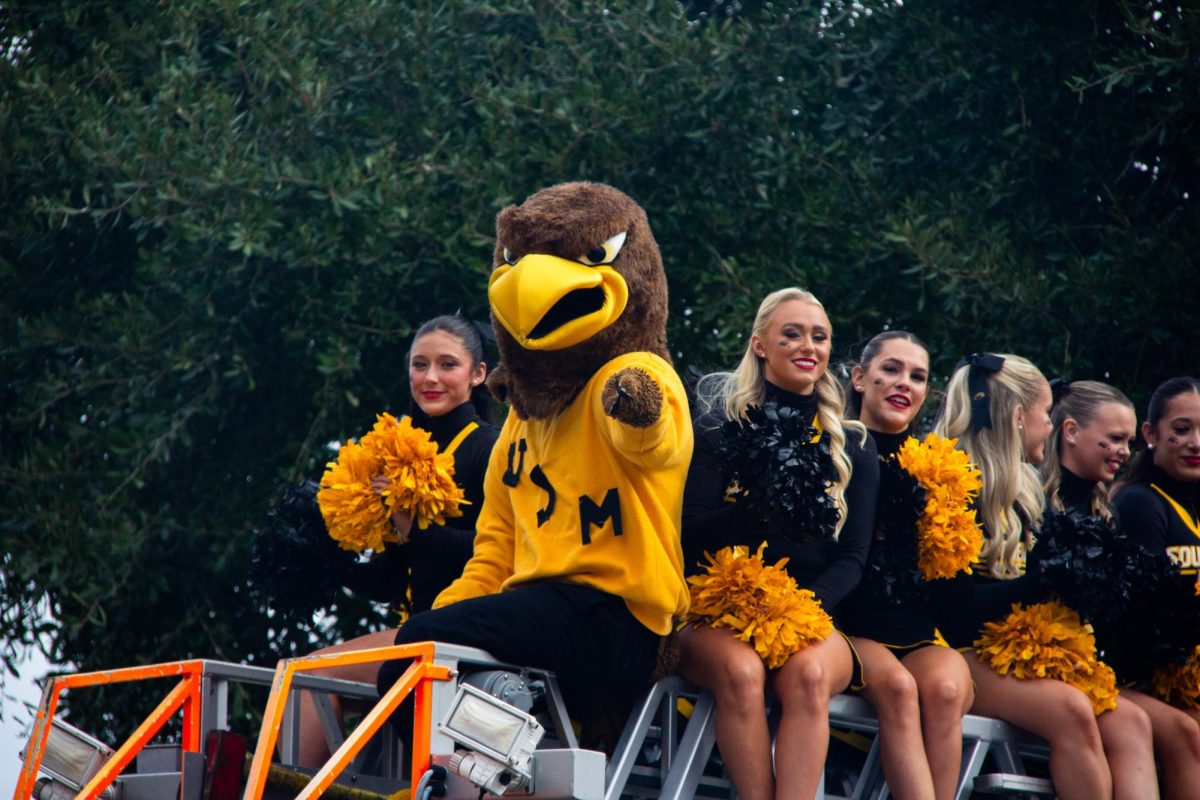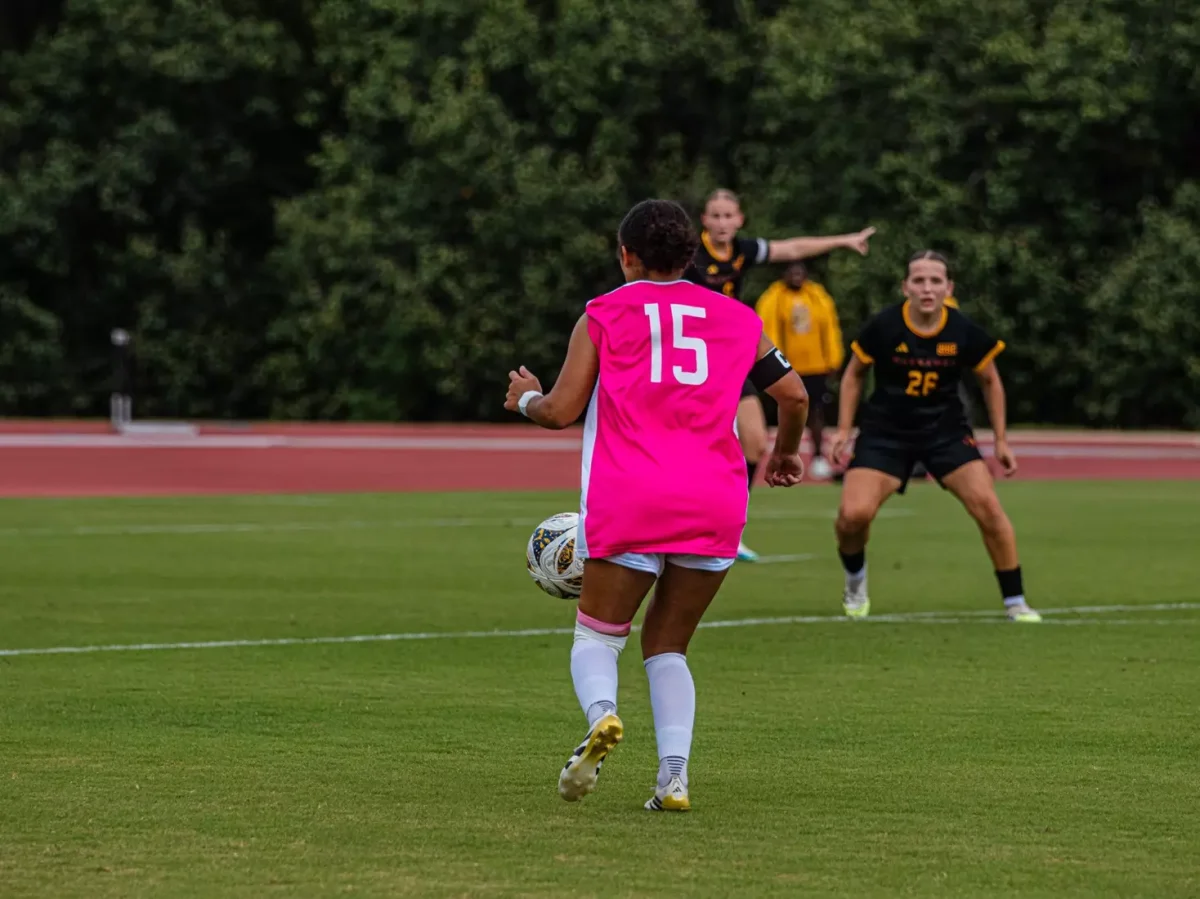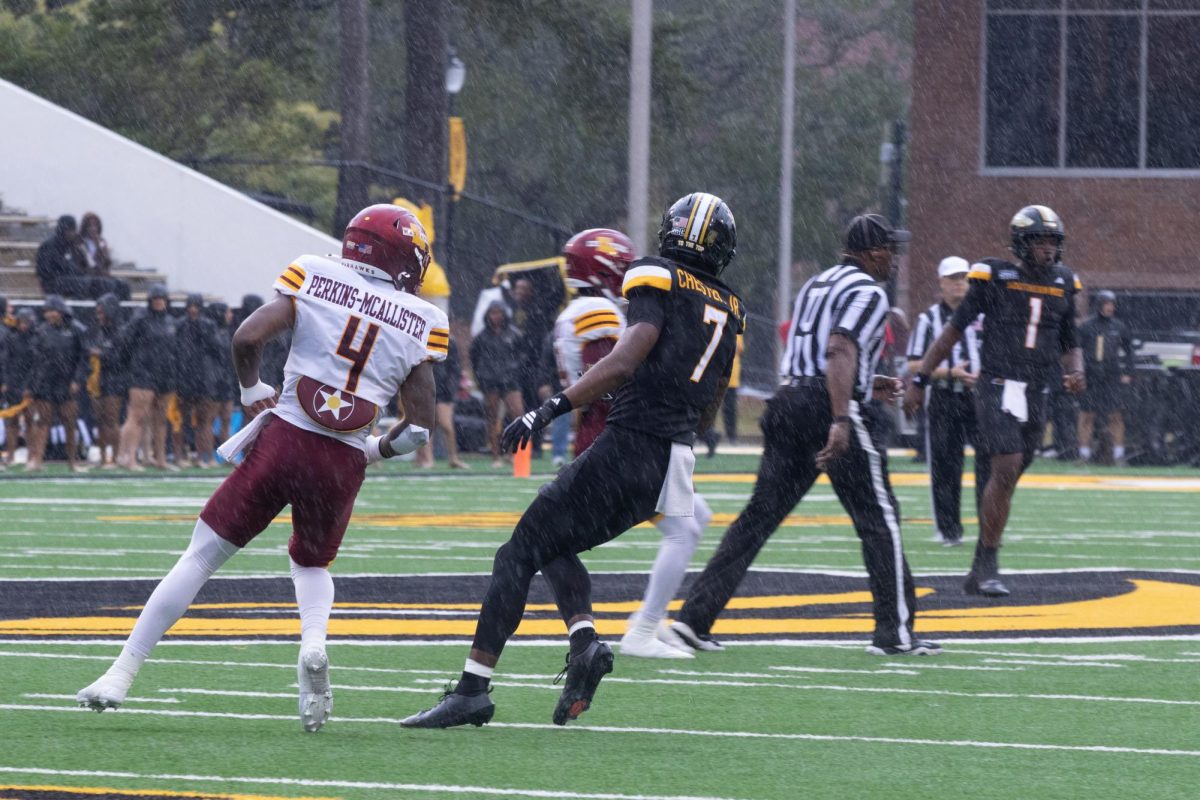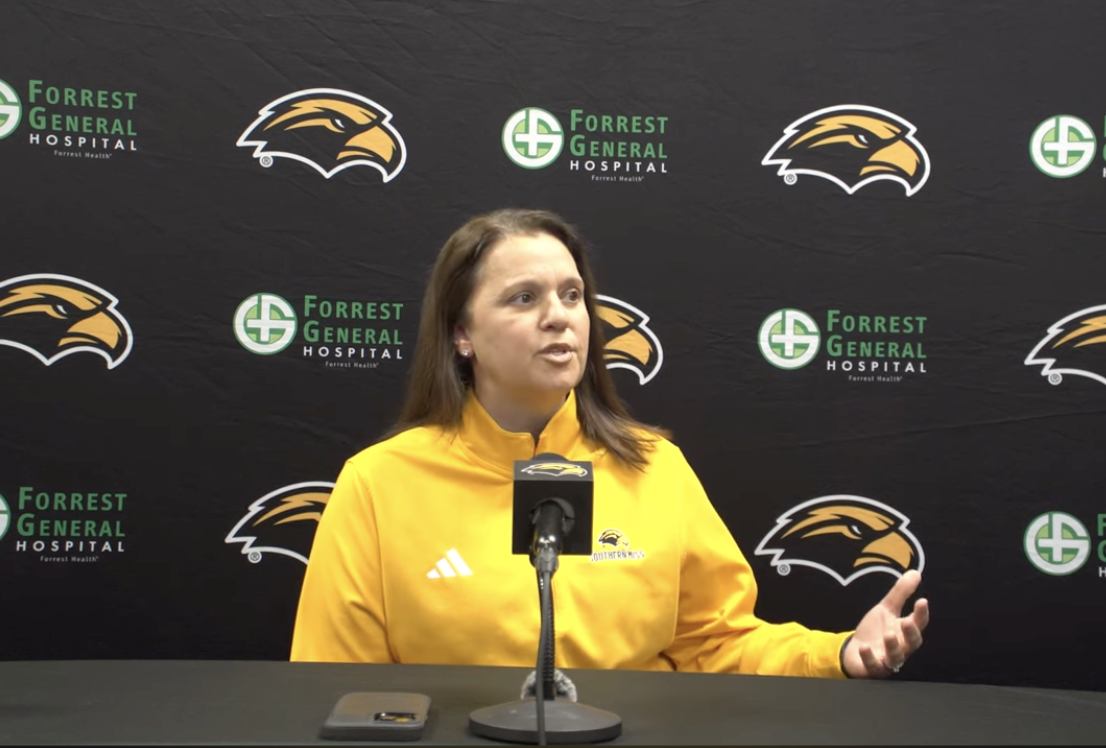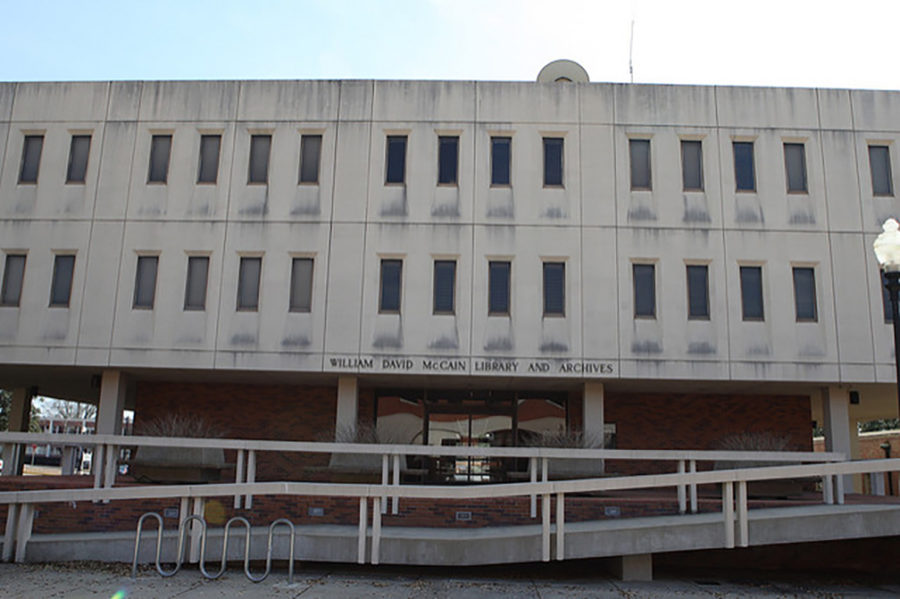The Student Government Association Senate committee assigned to look into former Southern Miss President William McCain’s history has switched gears after learning they cannot change the name of buildings dedicated to war veterans.
Mississippi Code 55-15-81, which was created in 2013, states that buildings, monuments, statues or nameplates that are erected on public property cannot be manipulated if the person they are honoring was a veteran. There was a bill in Senate that was recently denied that would have added penalties to the bill, but SGA president McKenna Stone said the SGA does not plan to change the name now that the bill is known to them.
“We came across that bill, and we definitely do not want to breach any of our Mississippi laws, so we are definitely not going to be doing anything to alter the name of McCain Library,” Stone said.
According to Monuments Men Foundation for the Preservation of Art, McCain enlisted in the Mississippi National Guard in 1924 and served the army in the antiaircraft artillery unit until he was reassigned as a military historian and served in Italy until late 1945.
SGA Senator and senior biological sciences major Andrew King was interested in the project when it was first announced by former Senator Jared Colley in late Nov. 2018. He said he was disappointed by the roadblock but feels the new direction they are moving toward will still be beneficial.
“It’s hard because you don’t want to make people angry,” senior history major and SGA Senate president pro tempore Caroline Carney said.
Carney said the purpose of this new direction is to shift into contextualizing the names of buildings. She said she believes that many students do not know who our buildings are named after and why, and their goal is to make it more known.
“I feel like it will probably be a long process,” King said. “I cannot predict how long it will take due to the state law, but the goal now will be to do more research on the situation and write legislation on the SGA’s findings.”
Stone said that there is currently not a formal process of archiving the history of the names of spaces on campus, so that will be the job of Carney and the committee. Stone also said they will be working with the Institute of Higher Learning in the process.
“Going forward, we still want to reach out to IHL and suggest that we want to [start contextualizing building names] statewide,” Carney said. “We were also going to try and partner with other universities to see if there was a similar issue on other campuses.”
Carney said she understands both sides of the argument for and against changing building names. She said she does not want to erase history but instead, shine a light on it. The argument to remove McCain’s name from the McCain Library and Archives came when Colley ran into the plaque beside Kennard-Washington Hall.
Colley used time at the State of the SGA address to urge Senate to create a committee to look into McCain’s involvement with the expulsion and arrest of Clyde Kennard.
“I’m going to be honest. McCain is not that frequented by people other than history majors,” Carney said. “Some people probably never heard of [McCain Library].”
Carney said she wants to help facilitate students to learn the history of McCain Library as well as other buildings and the people they are named after.
Carney said the ad hoc committee held a meeting to talk more about their new direction and continue the legislative drafting process. Stone said she does not know how they will move forward with their new goal, but suggested plaques could be a possible solution. She also suggested an online source that cataloged the buildings, their names and their stories, which she said would be more cost-efficient. Stone said the committee is “open to suggestions” if anyone has them.
“This process will be thorough and should serve to better educate Southern Miss students on the history of a university that we love and call home,” Stone wrote in her official statement. “We are hopeful this will result in a more complete archive of the history of named spaces on campus.”

